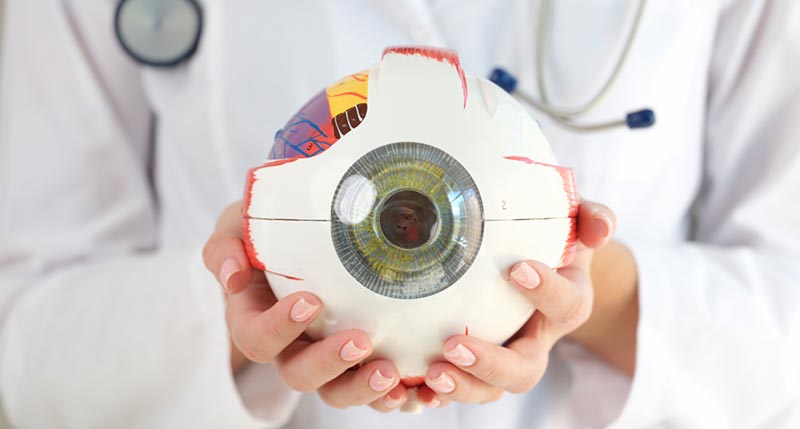All Categories
Featured

While many people comprehend the relevance of shielding their skin from the sun, the dangerous results of ultraviolet (UV) rays on eye wellness often go ignored. Extreme direct exposure to UV radiation can lead to a variety of eye problems, some of which can result in irreversible damage. Whether you're taking in the sunlight on a summer season day or walking outdoors on an over cast afternoon, protecting your eyes from UV rays is necessary. Below's what you require to understand about the impacts of UV radiation on your eyes and just how to shield them.
What Are UV Rays? UV rays are a kind of electro-magnetic radiation produced by the sunlight. They are categorized into 3 kinds:
UVA Rays: These pass through deep into the skin and eyes and can contribute to lasting damage. UVB Rays: These rays are more intense than UVA and are mainly responsible for surface-level damage to the eyes and skin. UVC Rays: These are the most hazardous yet are primarily soaked up by the Planet's ozone layer and do not commonly reach us. UVA and UVB rays are the primary perpetrators behind eye-related damage.
Short-Term Results of UV Exposure on the Eyes. Even temporary direct exposure to extreme UV rays can damage your eyes. One common condition brought on by this is photokeratitis, or "sunburn of the eye." Signs of photokeratitis consist of:
Uncomfortable, red eyes. Level of sensitivity to light. Tearing or too much watering. Temporary vision loss or fuzzy vision. Photokeratitis is typically short-term, yet it offers as a caution of just how harmful UV exposure can be, also in little doses.
Long-Term Results of UV Exposure. Extended direct exposure to UV radiation can cause more significant and long-term eye problems, such as:
Cataracts: UV rays can speed up the formation of cataracts, a problem that triggers clouding of the eye's natural lens, leading to fuzzy vision and, if neglected, blindness.

Macular Deterioration: UV exposure can damage the retina, particularly the macula, increasing the risk of age-related macular degeneration (AMD), which affects central vision.
Pterygium: A growth of cells on the white part of the eye that can cross the cornea, causing discomfort, soreness, and vision problems.
Pinguecula: UV exposure can create yellow-colored down payments to form on the conjunctiva, leading to irritability and dryness.
Skin Cancer Cells Around the Eyes: The fragile skin surrounding your eyes is extremely vulnerable to UV radiation, boosting the risk of skin cancers cells like basic cell cancer and squamous cell cancer.
Just How to Protect Your Eyes from UV Rays. Protecting your eyes from UV rays is easy and requires a couple of conscious routines:
Invest in Quality Sunglasses: Choose sunglasses that block 100% of UVA and UVB rays. Look for tags that define "UV 400" defense. Wrap-around designs are suitable as they block UV rays from the sides also.
Put On a Wide-Brimmed Hat: A hat with a brim at the very least three inches large can significantly reduce UV direct exposure to your eyes and face.
Limitation Exposure During Top Hours: UV rays are best in between 10 a.m. and 4 p.m. If you should be outdoors during these hours, see to it you're properly protected.
Do Not Be Deceived by Clouds: UV rays can penetrate via clouds, so it is necessary to wear sunglasses even on cloudy days.
Secure Your Eyes Year-Round: Snow, sand, and water can mirror UV rays, escalating their effects. Eye protection isn't just for bright summer season days-- guarantee you're covered in all periods.
Use UV-Blocking Get In Touch With Lenses: Several get in touch with lenses now include UV security. If you use contacts, ask your ophthalmologist about lenses with built-in UV filters for included defense.
Encourage Eye Security for Kid: Children's eyes are extra sensitive to UV rays because their lenses are more clear, enabling even more radiation to reach the retina. Make certain they use sunglasses and hats during outdoor tasks.
Normal Eye Tests. Regular check-ups with an eye treatment specialist are important for very early detection of any type of UV-related damage. An optometrist or eye doctor can evaluate your eyes, advise protective measures, and identify problems like cataracts or macular deterioration at an early stage.
Conclusion. UV rays posture a considerable danger to eye health, and their results can collect gradually. With the best preventative measures, you can minimize these dangers and secure your vision. By putting on UV-blocking sunglasses, restricting sun exposure throughout optimal hours, and staying constant with eye tests, you can guarantee your eyes stay healthy and balanced and your vision remains clear for years ahead. Safeguarding your eyes from UV radiation isn't practically convenience-- it's an important action in preserving your lasting eye health.
Latest Posts
The Benefits of Consistent Car Maintenance at Montclare Auto Repair Saves You Money
How Regular Vehicle Maintenance at Montclare Auto Repair Keeps Your Wallet Happy
Find Leading Vehicle Maintenance Services from Montclare Auto Repair – Keep Your Car Running Smoothly
More
Latest Posts
The Benefits of Consistent Car Maintenance at Montclare Auto Repair Saves You Money
How Regular Vehicle Maintenance at Montclare Auto Repair Keeps Your Wallet Happy
Find Leading Vehicle Maintenance Services from Montclare Auto Repair – Keep Your Car Running Smoothly